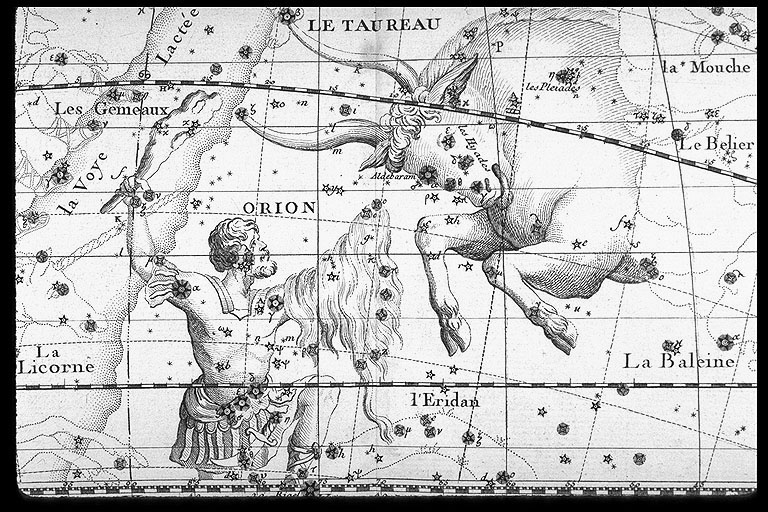| Job: | Post-doctoral Research Fellow, University
of Birmingham |
Where were you born?
I was born, in 1968, in a town called Clonmel, which is in County
Tipperary, Ireland (yes, another Irish person on the Sunblock team!)
How did you get interested in Astronomy?
As a child I was very interested in greek mythology and loved reading
stories about it. I had a book that showed the constellations that
were named after different greek characters. I used the book to start
to identify the constellations in the sky and ever since then I've been
hooked! That little book encouraged me to learn more about the stars
and my interest in astronomy just grew from there.
In this picture you can see the constellation of Orion, the great hunter.
Legend has it that Orion was killed by a scorpion. The gods took pity
on him and placed him and his hunting dogs in the sky as a
constellation, along with all the animals that he hunted like the bull, Taurus.
However, they were careful to put the scorpion, Scorpio, on the other
side of the sky so it wouldn't bother Orion again!
How did you become an astronomer?
When I finished school I went to University College Dublin and did a
degree in physics. I then went to Queen's University in Belfast and
did a PhD in astrophysics. I was originally interested in
interstellar clouds but then I got a chance to work in solar physics.
 |
|
This is a picture of a collection of nebulae (dust and gas clouds) in
the constellations of Scorpio and Ophiuchus. The dust in the clouds
reflects light giving the blue colour while the gas in the clouds gets heated by the
nearby stars and emits red light. Dust also blocks starlight giving dark patches.
What's life like as an astronomer?
It's very exciting. While I was doing my degree I got to travel to different
observatories around the world, to places like America, Australia and
the Canary Islands. Now that I work in solar physics I travel to the
Goddard Space Flight Center in the United States (where SOHO operations
are located) about three times a
year (a hard job but someone's got to do it!) Most of my work involves
analysing data on a computer, which is good since I like computers.
Working in solar physics is very interesting, especially with good
instruments like those on SOHO. The Sun is the only star we can get a
really close look at, and it has a lot to teach us about how stars in
general work.
What do you do outside work?
For sport I like to swim and play tennis, although I don't do these as
much as I should! I like to read. I have a wide range of reading
interests, I'll read almost anything, but my main interest is popular science or
science fiction books. I have a strong interest in foreign
languages and am trying to brush up on my native Irish. I'm also
learning to play the piano, but I don't think I'll be giving up solar
physics for the concert stage just yet!
Any advice for someone wanting to become an astronomer?
Well, obviously take physics and maths in school. After that you
should go to university and get a degree in either astronomy, physics
or maths. Read as much as you can about the subject and maybe join a
local astronomy club. I firmly believe that anyone can become whatever
they want if they set their mind to it. Astronomy is a fascinating
subject that's very rewarding to work in and I'd always encourage
people to get involved!
Credits
Orion and Taurus: Flamsteed, John. Atlas celeste. Ed. J. Fortin.
Paris, 1776. from Out of this world exhibtion, http://www.lhl.lib.mo.us/pubserv/hos/stars/welcome2.htm
Photo of nebulae: NASA "astronomy picture of the day", picture credit;
D. Malin (AAO). AATB, ROE, UKS Telescope.

